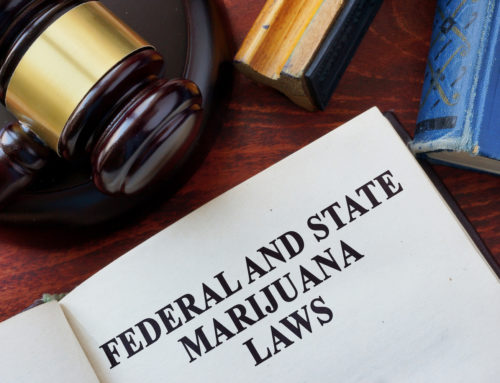 Police search of cell phones raises many legal issues. In the recent United States Supreme Court decision of Riley V. California, the Supreme Court ruled that a person’s cell phone cannot be searched by the police without a warrant (http://www.nytimes.com/2014/06/26/us/supreme-court-cellphones-search-privacy.html?_r=0 ). Specifically, the Supreme Court addressed the searching of data on the phone which may be evidence of a crime. In Riley, the defendant was involved in a traffic stop in San Diego when guns were found and his cell phone was seized. After seizing the phone, the police found evidence that the driver was involved in a gang and charged the defendant with a gang enhancement in his case pursuant to California Penal Code section 186.22(b). In many criminal cases in California, illegal searches and seizures can be challenged by an experienced criminal defense lawyer who can identify any searches performed in violation of the Fourth Amendment to the United States Constitution as discussed below. If you are accused of a crime and evidence was seized from your person, car, motorcycle or home, you should always consult a criminal defense lawyer to determine if charges can be challenged through a motion to suppress evidence as discussed below.
Police search of cell phones raises many legal issues. In the recent United States Supreme Court decision of Riley V. California, the Supreme Court ruled that a person’s cell phone cannot be searched by the police without a warrant (http://www.nytimes.com/2014/06/26/us/supreme-court-cellphones-search-privacy.html?_r=0 ). Specifically, the Supreme Court addressed the searching of data on the phone which may be evidence of a crime. In Riley, the defendant was involved in a traffic stop in San Diego when guns were found and his cell phone was seized. After seizing the phone, the police found evidence that the driver was involved in a gang and charged the defendant with a gang enhancement in his case pursuant to California Penal Code section 186.22(b). In many criminal cases in California, illegal searches and seizures can be challenged by an experienced criminal defense lawyer who can identify any searches performed in violation of the Fourth Amendment to the United States Constitution as discussed below. If you are accused of a crime and evidence was seized from your person, car, motorcycle or home, you should always consult a criminal defense lawyer to determine if charges can be challenged through a motion to suppress evidence as discussed below.
Motion to Suppress Evidence Seized in Violation of the 4th Amendment Under California Law
A person accused of a crime in California may move to suppress as evidence any tangible or intangible thing obtained as a result of an unreasonable search and seizure. California Penal Code §1538.5 provides in pertinent part:
The grounds for suppressing evidence obtained as a result of an unreasonable search or seizure are:
“(1) The search or seizure without a warrant was unreasonable.
“(2) The search or seizure with a warrant was unreasonable because (i) the warrant is insufficient on its face; (ii) the property or evidence obtained is not that described in the warrant; (iii) there was not probable cause for the issuance of the warrant; (iv) the method of execution of the warrant violated federal or state constitutional standards; (v) there was any other violation of federal or state constitutional standards.”
Whether you are seeking to suppress information from a cell phone seized without a warrant or the seizure of evidence to a car without a warrant, it is important to know the many cases interpreting the Fourth Amendment which will allow a seasoned attorney to successfully defend a person charged with a crime whether it be a murder charge or a garden variety possession of drugs or narcotics charge.
a. A Search Without a Warrant Can Normally Be Conducted Only Incident To a Lawful Arrest
In order to justify an arrest without a warrant, the actions of the arresting officer must be objectively reasonable. The actions must be based on facts that provide a reasonable belief that the person arrested has committed a public offence. People v. Miller, 7 Cal. 3d 219, 226, 101 (1972). This rule is based on the provisions of the Penal Code s. 836, which provides:
“A peace office may … without a warrant, arrest a person:
“1. Whenever he has reasonable cause to believe that the person to be arrested has committed a public offense in his presence.
“2. When a person arrested has committed a felony, although not in his presence.
“3. Whenever he has reasonable cause to believe that the person to be arrested has committed a felony, whether or not a felony has in fact been committed.”
After the arrest, a person’s can be searched for weapons and contraband but there are still exceptions which require a warrant before a search such as the search of cell phone dates as explained in the Riley Supreme Court case above. There are also prohibitions about searching a car during a traffic stop and arrest where there is no threat to the officers involved in the arrest. The many exceptions to the search incident to arrest rule can be often times used to successfully defend criminal charges and a person arrested based on seized evidence should always consult with and/or retain a lawyer so that their rights can be properly defended.
b. Challenging a Search Warrant
Even if a person’s cell phone data or other information is seized pursuant to a warrant, such seizure can still be challenged. The Fourth Amendment to the United States Constitution provides that a search warrant should only be issued on probable cause. Probable cause for a search warrant is normally set forth in an affidavit under penalty of perjury by a law enforcement officer to a judge. As explained in the Supreme Court case of Illinois v. Gates (1983) 462 U.S. 213, 238, the affidavit in support of a search warrant must provide substantial information and/or a basis allowing a judge to reasonably conclude that there is a fair probability that the place to be searched contains evidence of a crime. In order to survive a constitutional challenge by a defendant, a search warrant affidavit must contain facts that establish a sufficient nexus between the place or items to be search and criminal activity.
The need to retain qualified California criminal defense attorney if you are subject to an unlawful search of your cell phone:
As such, even if a person in a criminal prosecution is faced with challenging evidence that was seized pursuant to a search warrant, a criminal defense attorney can still challenge the warrant and have the items suppressed which often times can lead to the dismissal of a criminal case.





